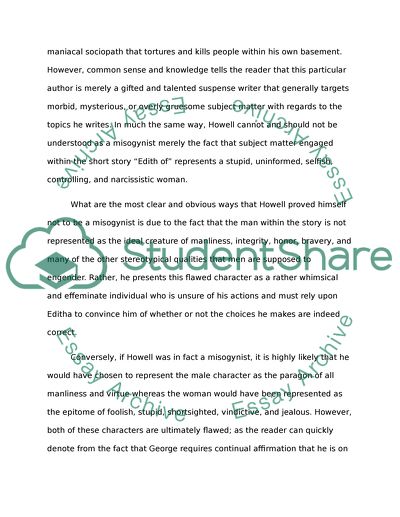Cite this document
(“Editha - Whether the Author Harbored Misogynist Emotions Essay”, n.d.)
Editha - Whether the Author Harbored Misogynist Emotions Essay. Retrieved from https://studentshare.org/literature/1487272-the-editha
Editha - Whether the Author Harbored Misogynist Emotions Essay. Retrieved from https://studentshare.org/literature/1487272-the-editha
(Editha - Whether the Author Harbored Misogynist Emotions Essay)
Editha - Whether the Author Harbored Misogynist Emotions Essay. https://studentshare.org/literature/1487272-the-editha.
Editha - Whether the Author Harbored Misogynist Emotions Essay. https://studentshare.org/literature/1487272-the-editha.
“Editha - Whether the Author Harbored Misogynist Emotions Essay”, n.d. https://studentshare.org/literature/1487272-the-editha.


